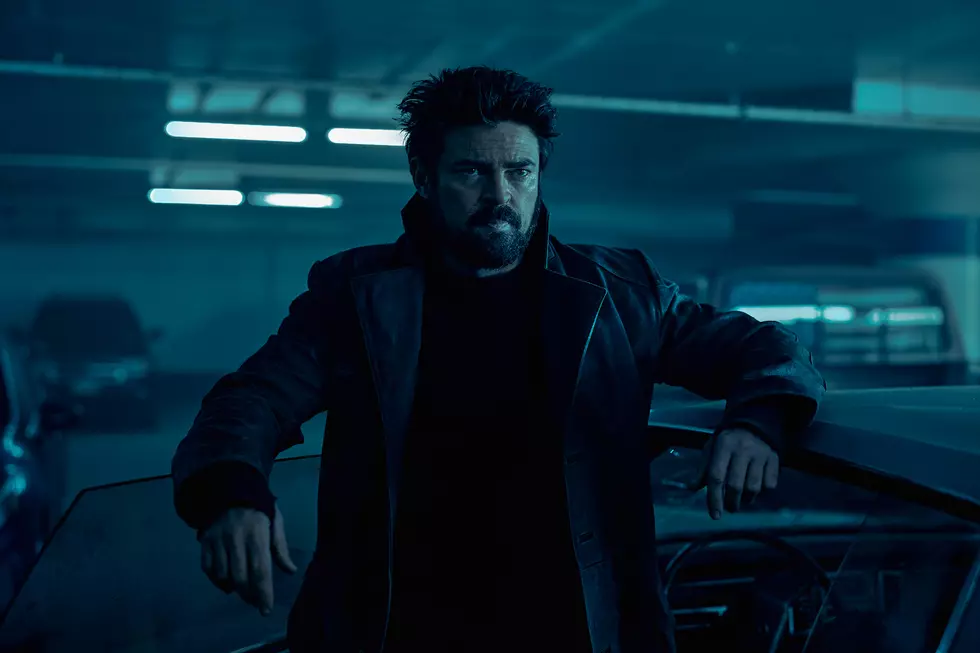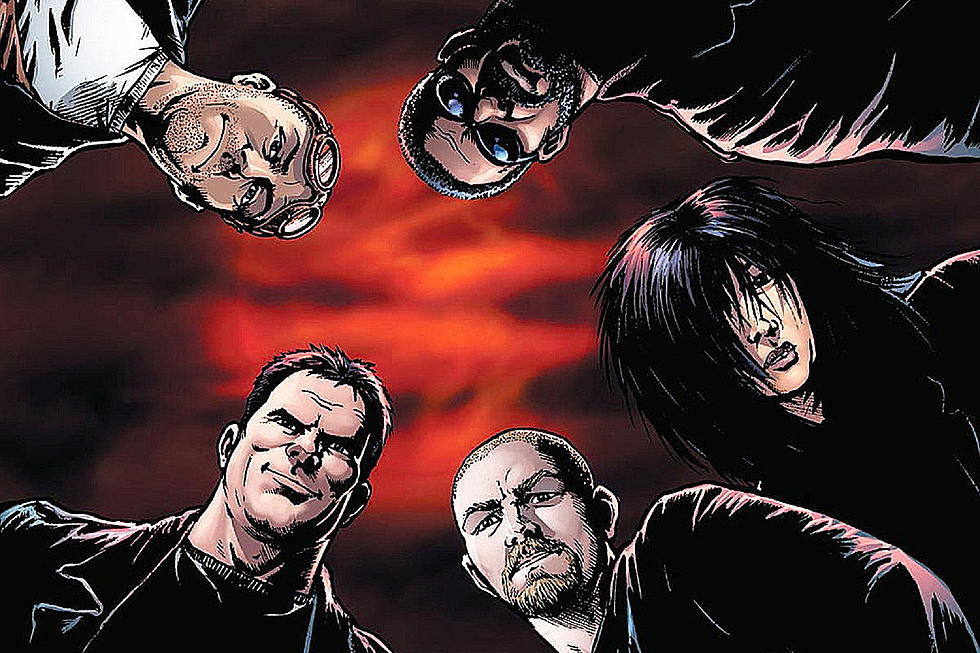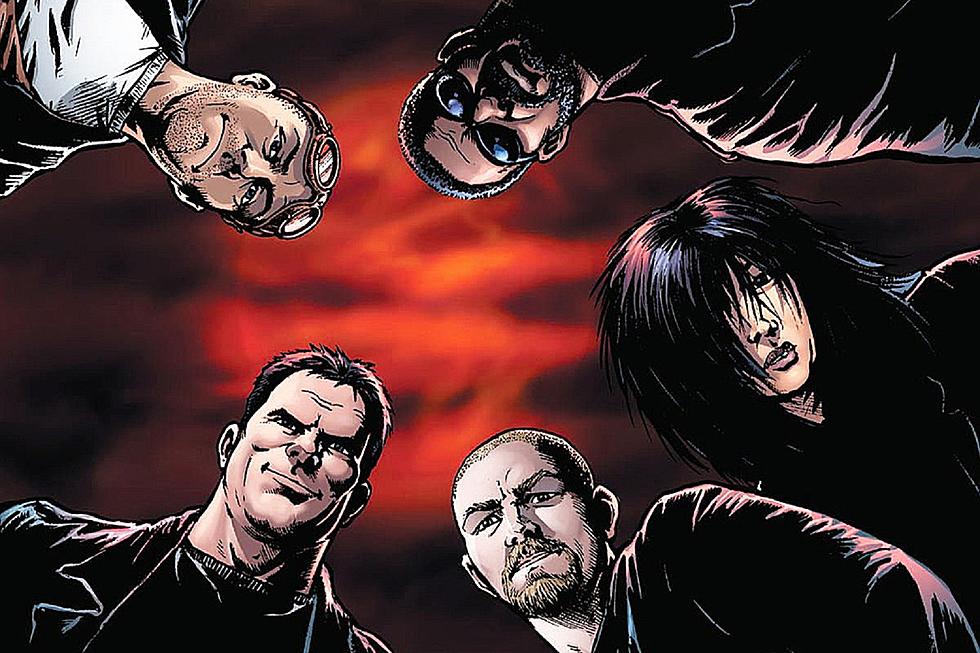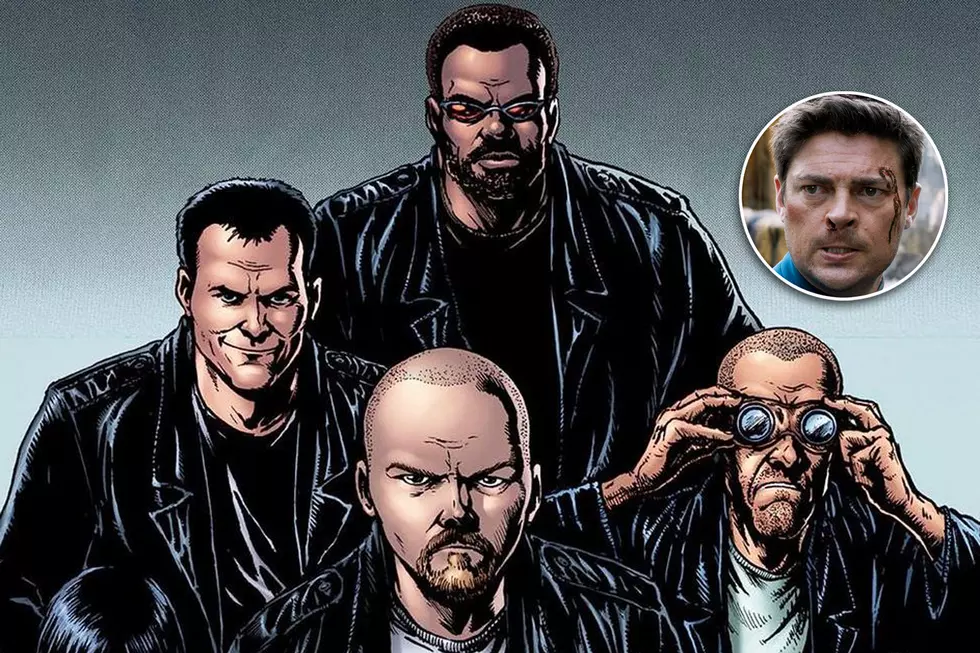
‘Dredd’ Review
When a movie called 'Judge Dredd' is as bad as 'Judge Dredd,' the "dreddful" jokes write themselves. The original 'Dredd' movie starring Sylvester Stallone was so horrifically awful, it rendered the property more radioactive than the post-apocalyptic wasteland surrounding the title character's hometown of Mega-City One. The popular future cop from the long-running British series '2000 AD' finally returns to the big screen with 'Dredd,' a significant improvement over the Stallone vehicle with a vastly improved storyline and a far darker tone.
It eschews the first film's colorful, over-the-top action and wacky comic relief for the sort of grimy, sadistic ultraviolence found in the '70s exploitation films that inspired the creation of the Dredd character in the first place, and it's a surprisingly entertaining movie for something that's so unsettlingly violent. You've never had so much fun watching people get shot in the face in super slow-motion.
The slo-mo is more than a gimmick in this case; it's crucial to the plot, which involves a new street drug called Slo-Mo that tricks users' brains into thinking that time is moving at 1% its normal rate. The manufacture and supply of Slo-Mo in Mega-City One -- an enormous metropolis that spans the Eastern Seaboard from Boston to Washington D.C. -- is controlled by a drug kingpin named Ma-Ma (Lena Headley), who resides on the top floor of a 200-story apartment tower called Peach Trees. Headley, rocking a punker's haircut, hideously jagged facial scar, and a seriously bad attitude, is one of the most deliciously evil villains in recent movies. She's so cruel she makes Judge Dredd (Karl Urban) himself look like a nice guy.
When Dredd, a supremely skilled member of Mega-City One's mega-fascistic police force, shows up to investigate a murder at Peach Trees, Ma-Ma senses a threat to her power. She locks down the building, announcing that no one will be allowed in or out until Dredd and his rookie partner, Judge Anderson (Olivia Thirlby) are dead. Anyone caught helping them survive is as good as dead, too.
Two against an army of gangsters would be bad odds under the best of circumstances, but Dredd's new backup almost flunked out of the judges academy for poor grades, which, in the brutal dystopia of Mega-City One, means she still contains a shred of compassion for the weak and the downtrodden. Anderson got a pass for one important reason: she possesses powerful psychic abilities. She's sent tagging along on patrol with Dredd for one final, on-the-job test to see whether she really has what it takes to play judge, jury, and executioner. Stumbling into the hornets' nest at Peach Trees was pure dumb luck.
The previous 'Judge Dredd' movie was just pure dumb; this one, directed by Pete Travis and written by Alex Garland of '28 Days Later' and 'Never Let Me Go' fame, is a bit smarter and a lot more clever. The Slo-Mo drug allows cinematographer Anthony Dodd Mantle to create some truly memorable images out of relatively innocuous things: breaking glass, splashing bathwater. The film's structure, which follows the judges as they climb through Peach Trees to confront Ma-Ma, recalls another of 2012's better action films, "The Raid: Redemption," but it also suggests a microcosmic social critique, with the haves at the top, the have-nots at the bottom. When this society chews you up and spits you out, it's a long -- and quite literal -- fall down.
Is Garland indicting a justice system that cares more about executing prisoners than helping its citizens, or a society that seems almost entirely populated by drug dealers and murderers? Maybe he's simply presenting a rather bleak view of all of humanity on either side of the law. Dredd himself is a twisted perversion of the Western democratic justice system: a critique of its dark side or an indulgent right-wing fantasy, depending on your point of view (the film itself, ironically enough, withholds judgment). But as played by Urban from beneath a giant helmet that obscures all but his lips and chin -- which, let it be said, give a marvelously expressive performance -- he's a seductively appealing character, Clint Eastwood's Dirty Harry in a far-flung future. Tough, honest, ruthless, and full of deadpan one-liners, he's a great anti-hero and a repulsive thug all rolled into one. Urban's grim presence is nicely balanced out by Thirlby, who provides 'Dredd''s few notes of compassion (or weakness, if you prefer) and offers the battle-hardened judge a new way of looking at the world.
'Dredd' isn't exactly the most briskly paced action movie -- no movie with this much slo-mo footage could be. It proceeds like its protagonist: ploddingly but relentlessly. Near the end of the film, a few more judges get pulled into the battle for Peach Trees. At one point, one of them turns to Dredd and says "This world is a meat grinder: people go in, meat comes out. We're just the ones turning the handle." Sounds a lot like the world of comic book movies: interesting source material goes in and, more often than not, bland crap comes out the other end. 'Dredd' is something else: cruel and vicious, but also smart, stylish, and even kind of funny. Credit to Travis, Garland, and company for turning the handle so expertly.
[Editor's Note -- The above review is in response to a screening of the 'Dredd' theatrical version. To read our full review of the version exclusively shown at San Diego Comic-Con 2012, click here.]
'Dredd' is in theaters now.
Matt Singer is a Webby award winning writer and podcaster. He currently runs the Criticwire blog on Indiewire and co-hosts the Filmspotting: Streaming Video Unit podcast. His criticism has appeared in the pages of The Village Voice and Time Out New York and on ‘Ebert Presents at the Movies.’ He lives in Brooklyn with his wife, dog, and a prop sword from the movie ‘Gymkata.’
More From ScreenCrush









